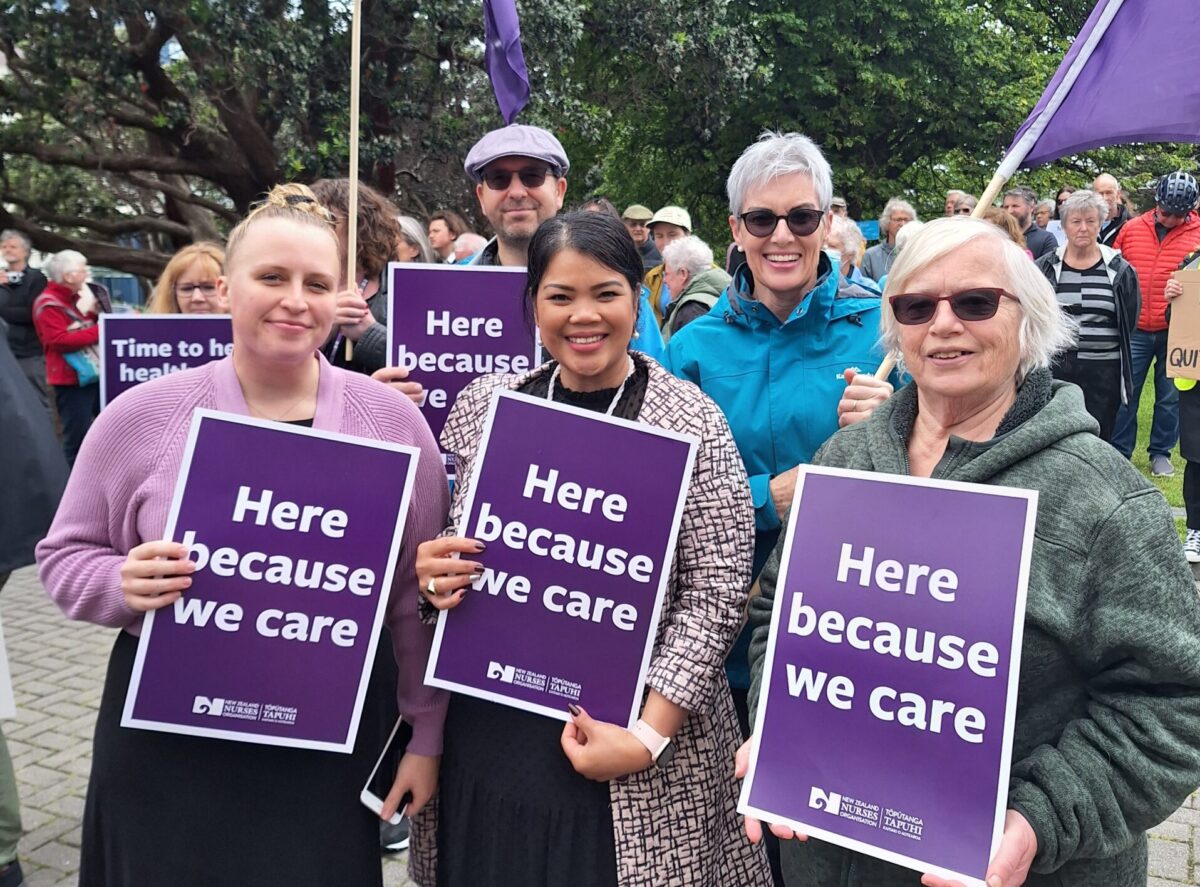‘A smokefree future is within our grasp. The law we passed was going to mean we could all enjoy that future.’
About 1000 people gathered at Parliament in Wellington chanting “shame, shame, shame” as a stream of opposition politicians from Labour, Te Pati Māori and the Greens spoke out against what was described as a “dirty deal” made behind closed doors to secure a coalition — and more income to fund promised tax cuts. Another 500 or so marched to ACT leader David Seymour’s electorate office in Auckland.
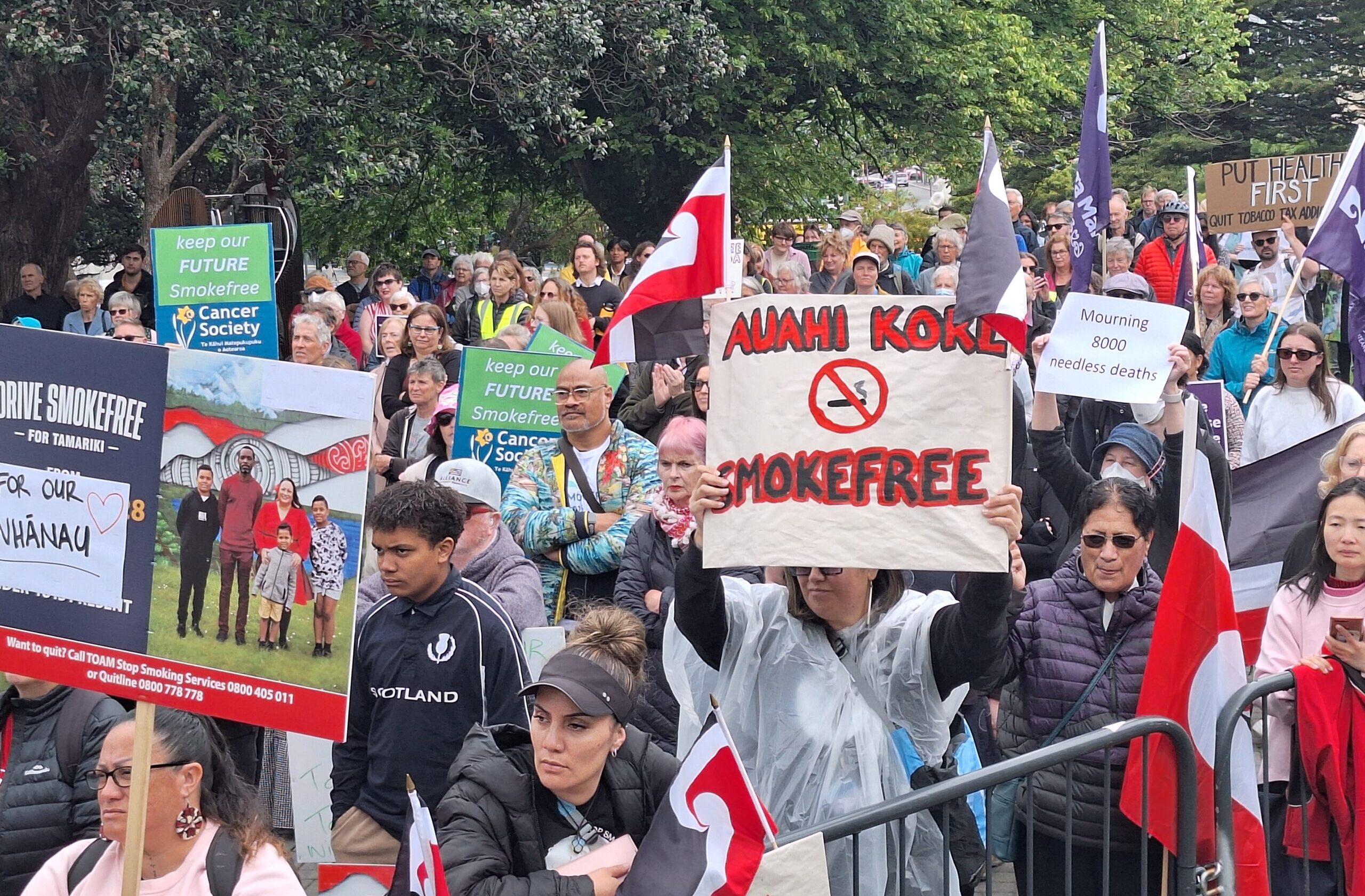
‘We see the effect, of what tobacco can cause, on young people — we’re absolutely disgusted.’
Wellington Hospital theatre nurse Jenny Kendall said nurses were appalled by the move — and the back-room dealing. “We see the effect of what tobacco can cause on young people — we’re absolutely disgusted.”
Labour health spokesperson Ayesha Verrall challenged her successor, Minister of Health and GP Shane Reti, to honour his Hippocratic oath to do no harm. Verrall — also a doctor — told media that if she were in his position, she would resign.
Reducing retail outlets and removing nicotine meant, “we would have had our dream of a smoke-free generation, with no-one born after 2009 being able to legally purchase tobacco”, she said.
“A Smokefree future is within our grasp. The law we passed was going to mean we could all enjoy that future.”
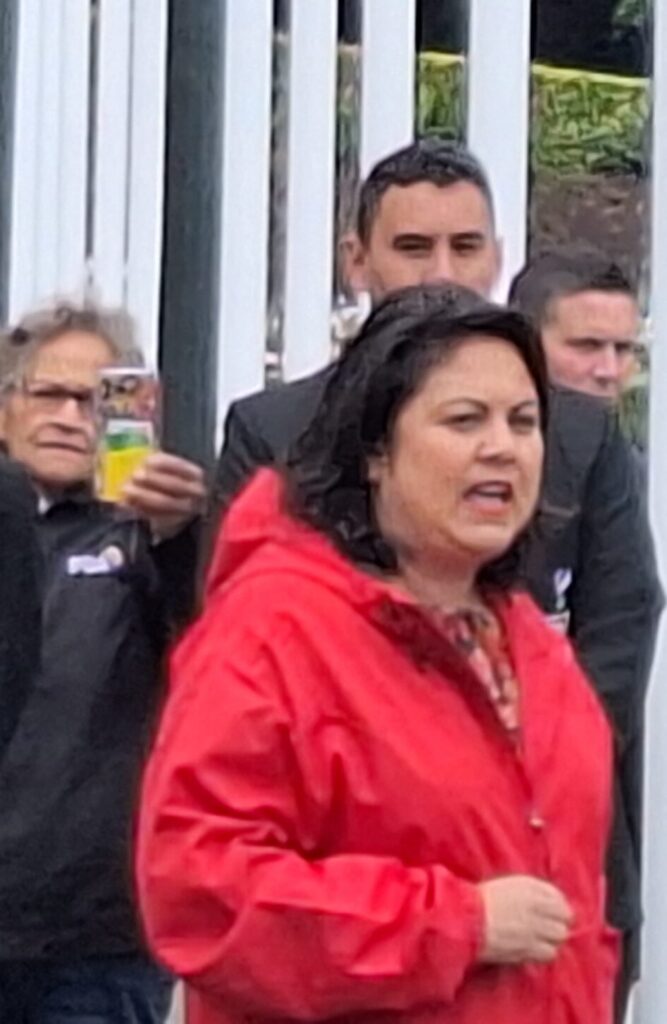
Verrall said she was “absolutely shocked” when she read coalition documents scrapping the popular law, as the National Party had not campaigned on that, nor was it in New Zealand First’s manifesto.
“This is the result of a dirty deal done in a back room,” Verrall said, to loud applause. New Zealanders wanted to be healthy, to stay out of hospitals — yet tobacco killed half its users. “It makes no sense that the Government is turning it back,” said Verrall.
‘This is the result of a dirty deal done in a back room.’
Reti has so far refused to front on the issue, referring media, including Kaitiaki, to Associate Health Minister Casey Costello, a new New Zealand First MP who has taken over Smokefree, vaping and tobacco responsibilities.
Reti’s office has only issued a brief statement saying he “absolutely reinforces the coalition government’s commitment to drive down smoking rates”.
Government ministers including Reti and Costello were nowhere to be seen as Māori public health advocates Hāpai Te Hauora presented its petition people over profit, with 47,000 signatures, to Te Pati Māori MP Hana-Rawhiti Maipi Clarke and co-leader Debbie Ngarewa-Packer.
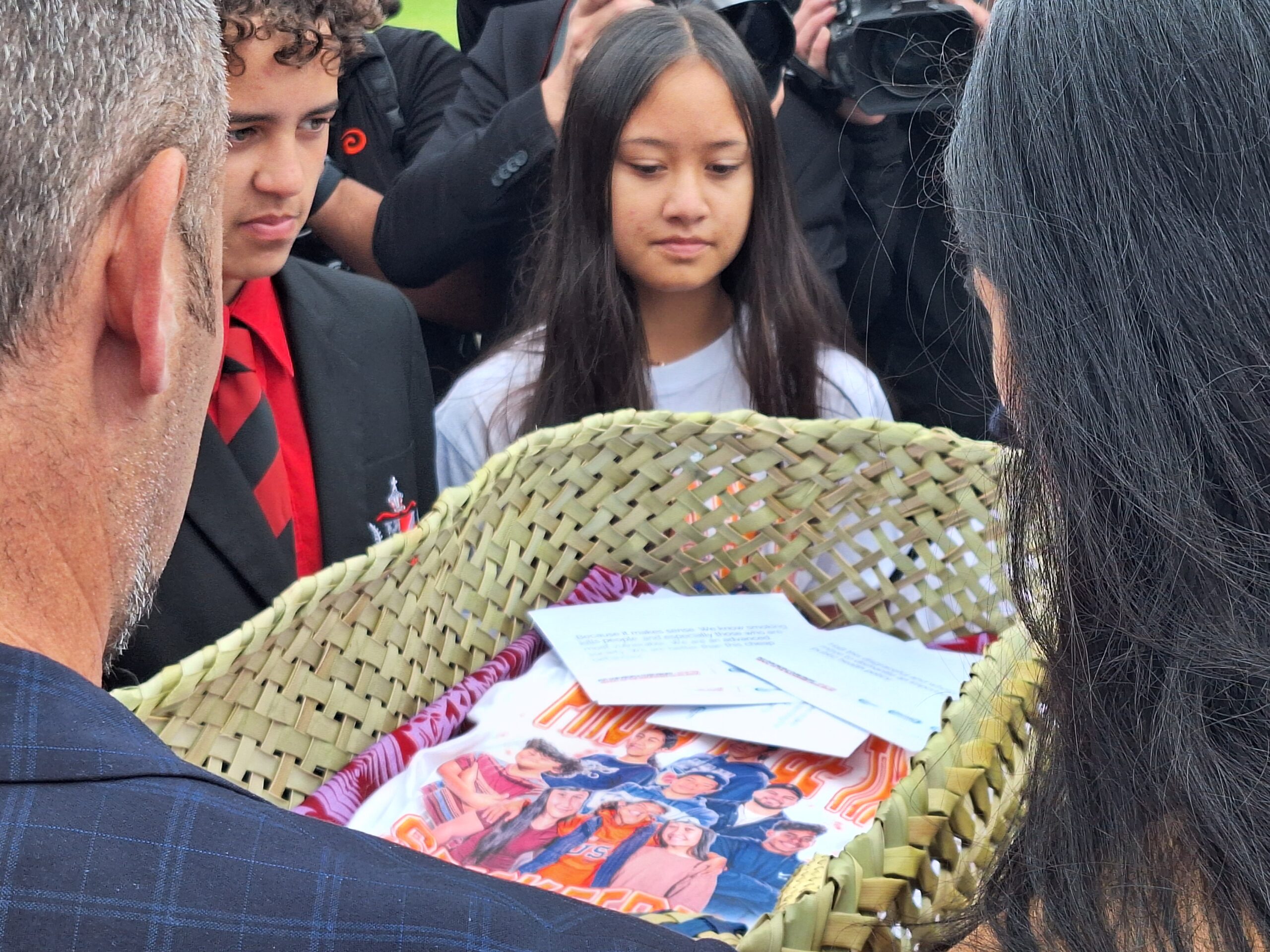
‘This is a deliberate and knowing act of public health vandalism.’
NZNO — Tōpūtanga Tapuhi Kaitiaki o Aotearoa kaiwhakahaere Kerri Nuku described the repeal as an “attack” on Māori. “This is about the mokopuna of our future.”
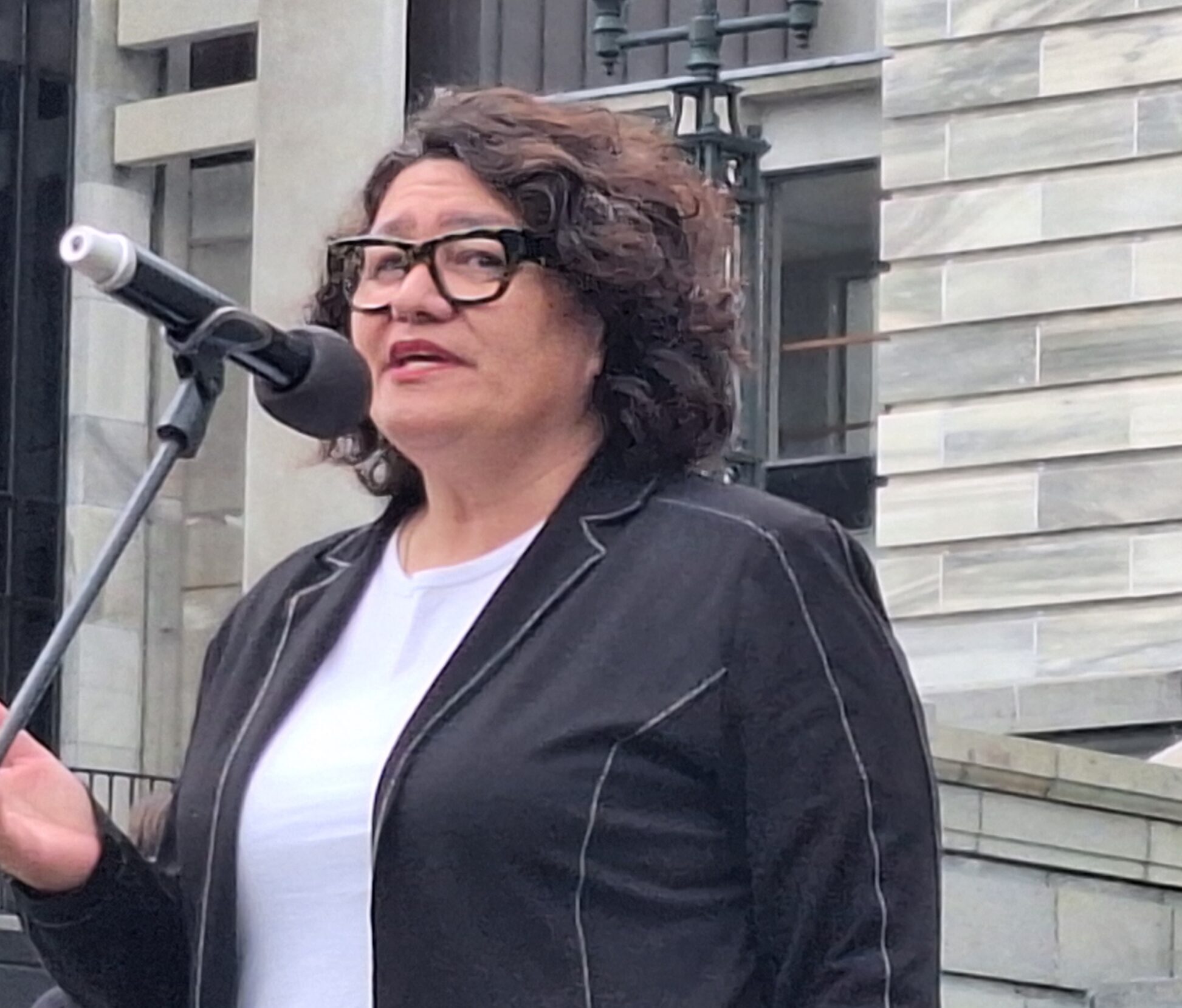
Every day, she said nurses saw the impact of tobacco-related diseases and had shared their experiences in 2009 lobbying for the law change.
“Why do we have to continue to tell our stories, to validate our presence and our future and a life for our mokopuna? Why is whakapapa not enough to cherish for the future?”
Aspire tobacco-free researcher Richard Edwards — a former respiratory physician — said the Government was well aware of the benefits of Smokefree laws but appeared not to care.
Minister of Finance Nicola Willis aligning tax cuts with scrapping Smokefree laws was “awful moral depravity”, Edwards said.
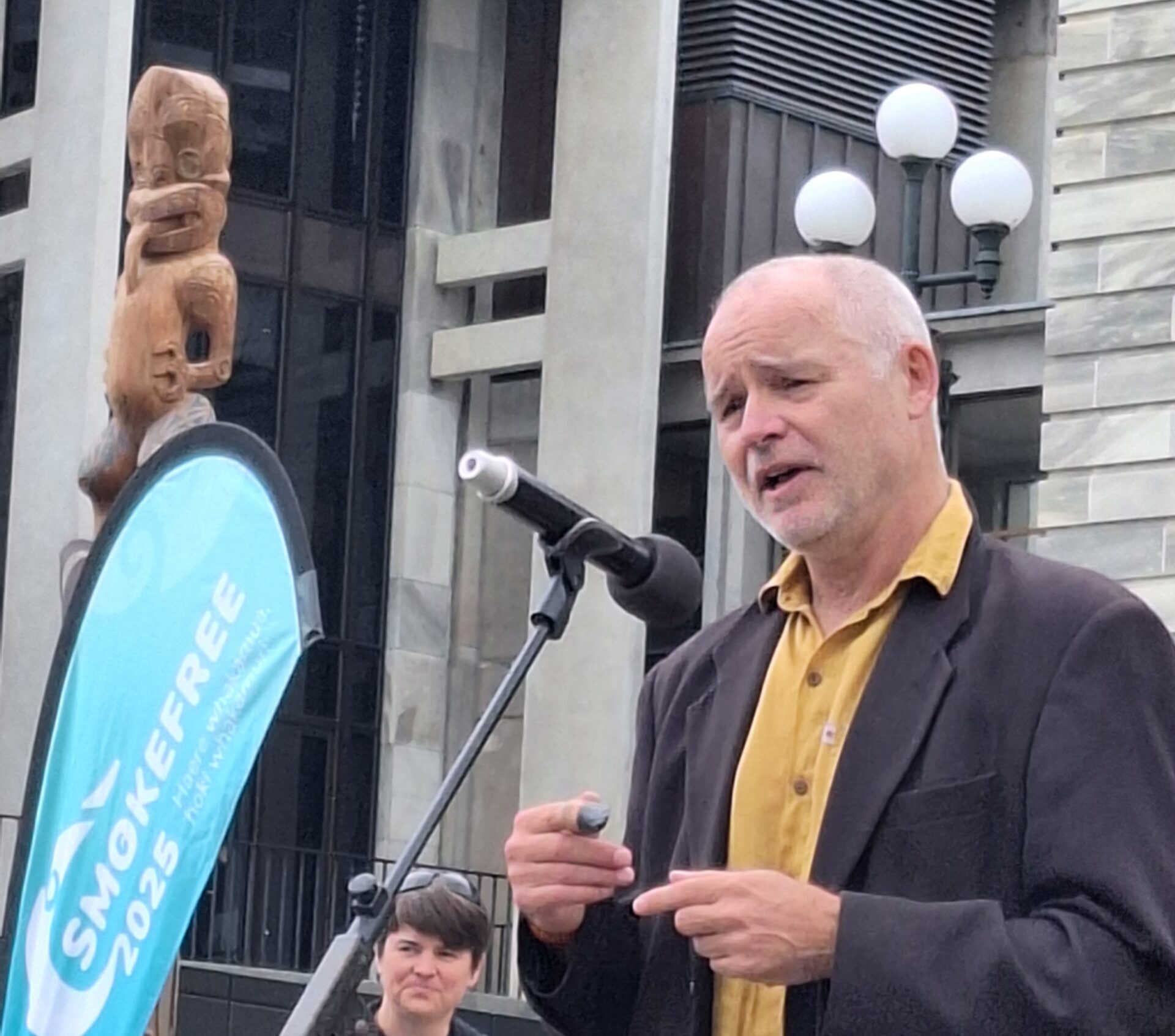
“That was bad enough — but what it also illustrated was they know that these measures will work, because they’ve factored it into their revenue for tobacco taxation,” Edwards told the crowd.
“So that means this is a deliberate and knowing act of public health vandalism.”
Green MP Hūhana Lyndon said undoing 20 years of world-leading Smokefree work was a “dying shame”.
Te Pati Maori MP Hana-Rawhiti Maipi-Clarke told the rally that rangatahi wanted a smokefree Aotearoa.
“You can’t take Te Aka Whai Ora out and then put smoking in. You can’t take out phones and make smoking more accessible for our kids. The maths isn’t mathing.”
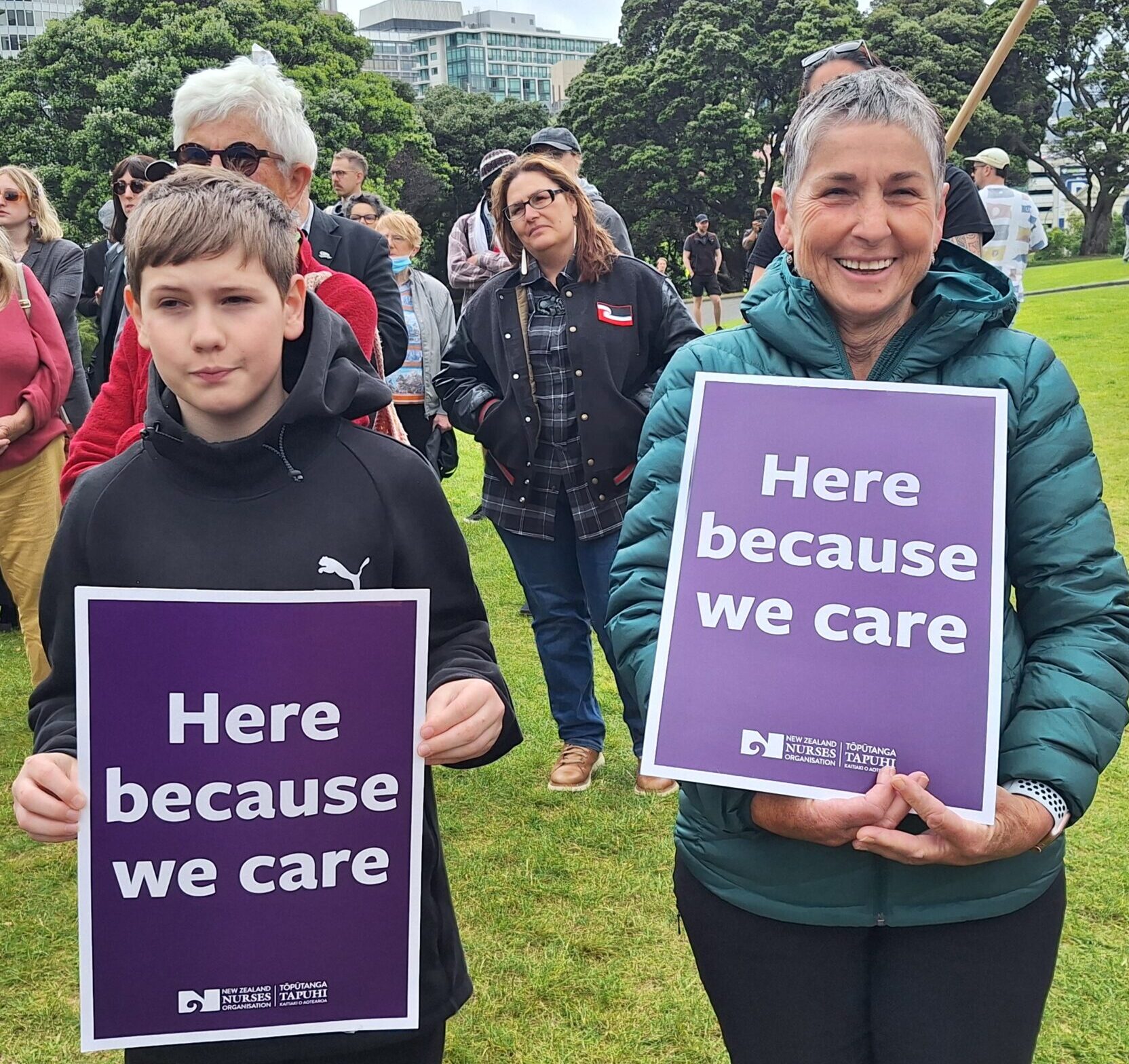
Health Coalition Aotearoa research has shown 67 per cent of New Zealanders support the overall Smokefree Aotearoa measures — and 77 per cent support denicotisation.
Māori activist Hone Harawira saltily described the new Government as a “bunch of assholes” for its attempt to unpick the laws — which had taken many years of work to get this far, and would hit Māori and Pacific populations the hardest.
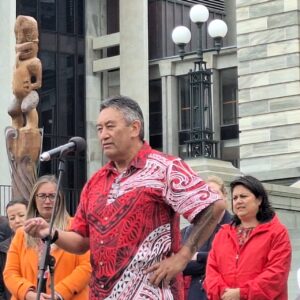
Research shows smoking rates are dropping but remain disproportionately high in Māori (35 per cent) and Pacific (24 per cent) populations, compared to 15 per cent in the general population.
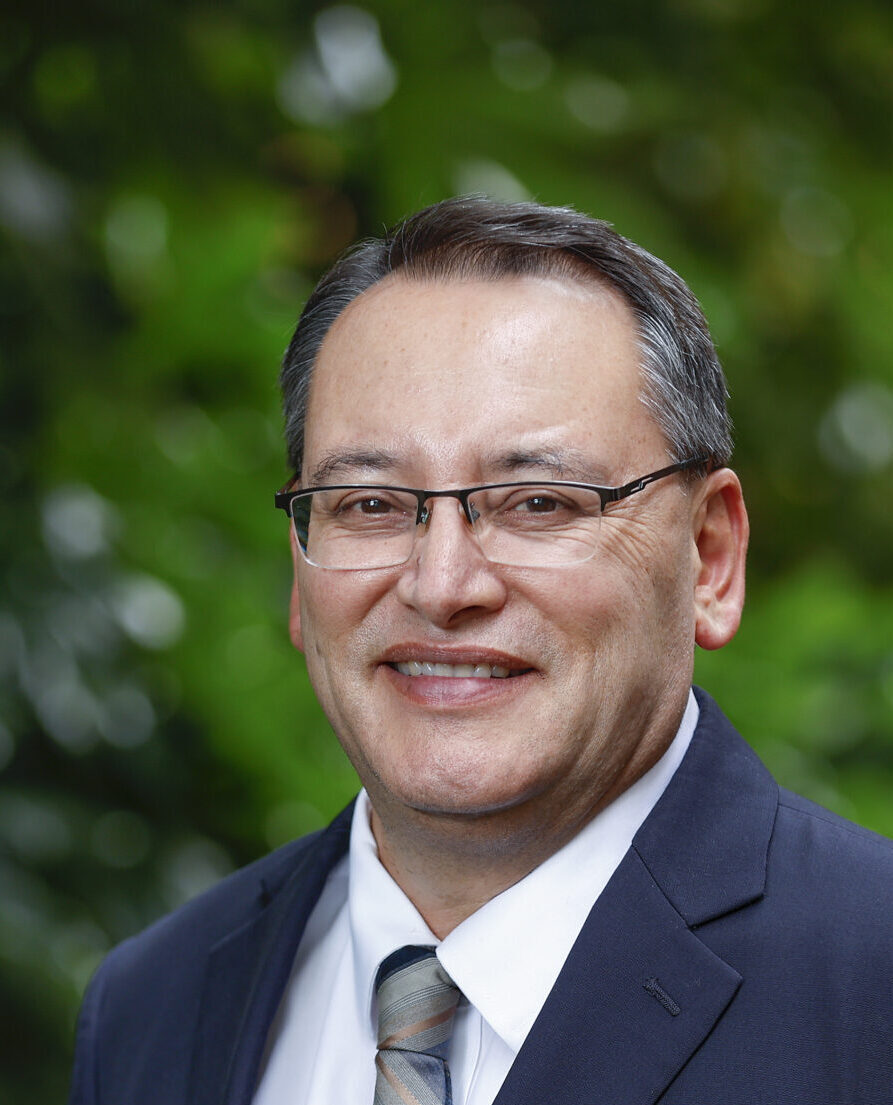
Reti defended the policy on RNZ’s Checkpoint last month, saying National was committed to reducing smoking, but had concerns about how the Smokefree law would impact black markets and theft.
Costello said there was “misunderstanding” over Government plans.
‘We will focus on deterring smoking and providing people with practical tools and supports to help them to quit.’
The coalition Government remained committed to the Smokefree 2025 goal, she told Kaitiaki via email. Repealing three elements of the legislation — denicotisation, reducing retailers and banning cigarette sales to those born from January 2009 — did not mean Smokefree targets were abandoned.
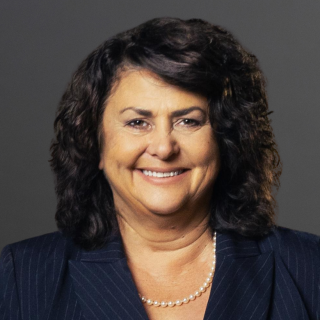
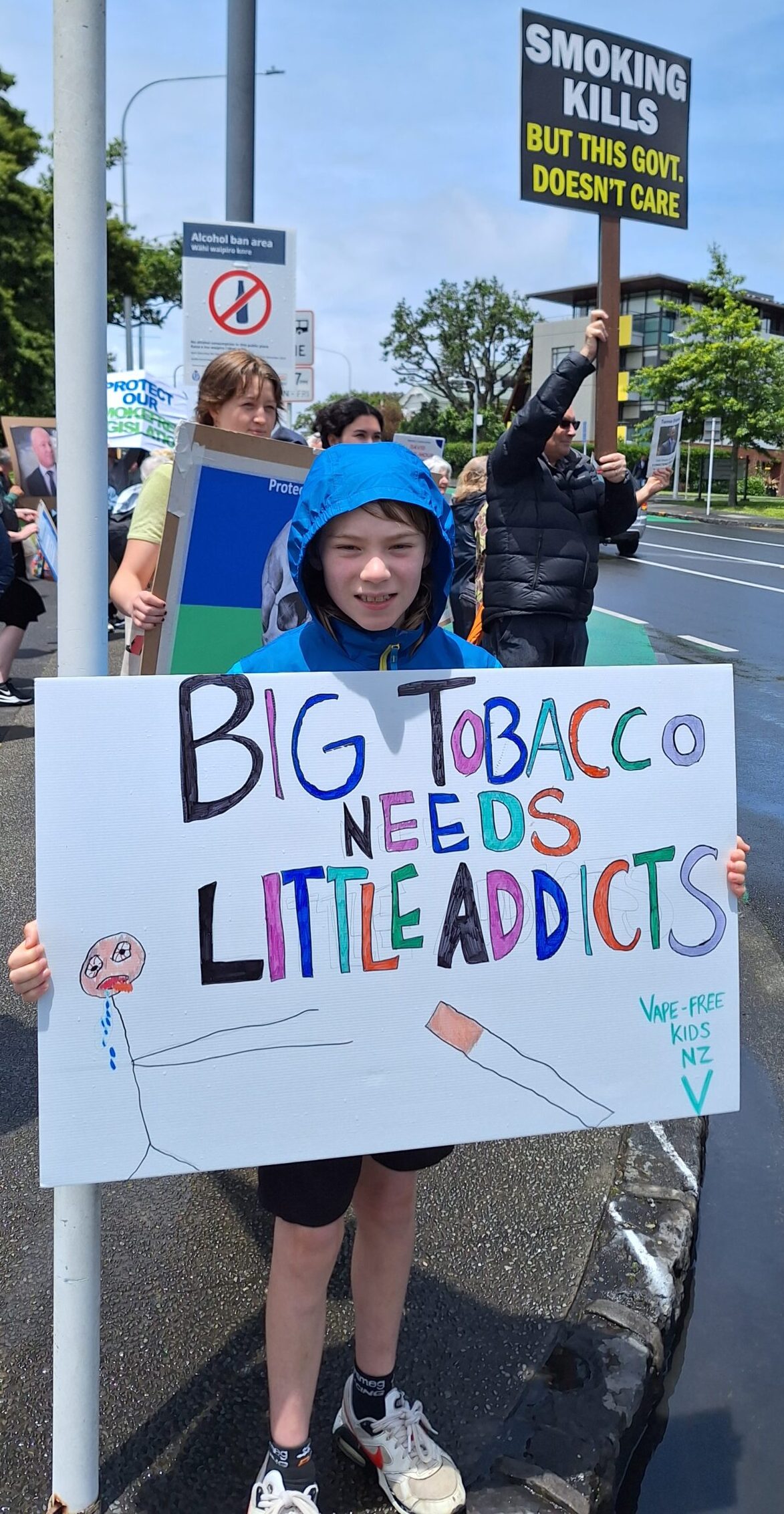
However, the approach would be different.
“We will focus on deterring smoking and providing people with practical tools and supports to help them to quit, rather than putting in place barriers to prevent or complicate the process by which people access smoked tobacco products.”
Costello said she had asked officials for advice on alternative approaches.
NZ college of primary health care nurses chair Tracey Morgan said the decision was “ridiculous”. Smoking was one of Aotearoa’s leading causes of death and much effort had been put into making it smoke free.
“It is plain and simple — money or health of Aotearoa. Which is it, Government?”
Pacific health leader Sir Collin Tukuitonga has resigned from all his government advisory roles over the matter, saying he had no confidence in it and was “appalled” at the decision to repeal Smokefree laws. He told Stuff that Māori and Pacific would pay the price.
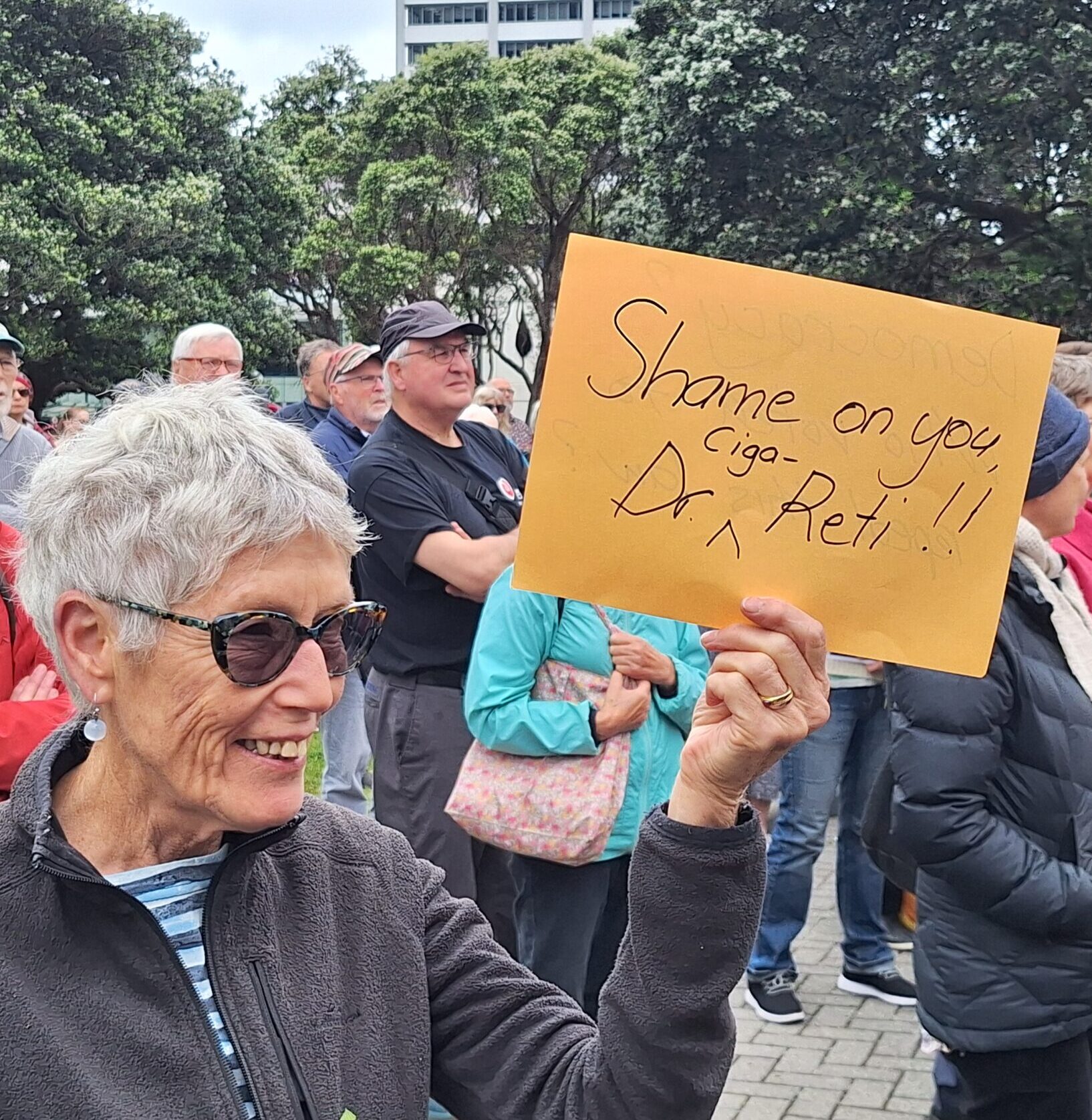
See also: Nurses, health workers stand up against ‘incomprehensible’ Smokefree rollback.



